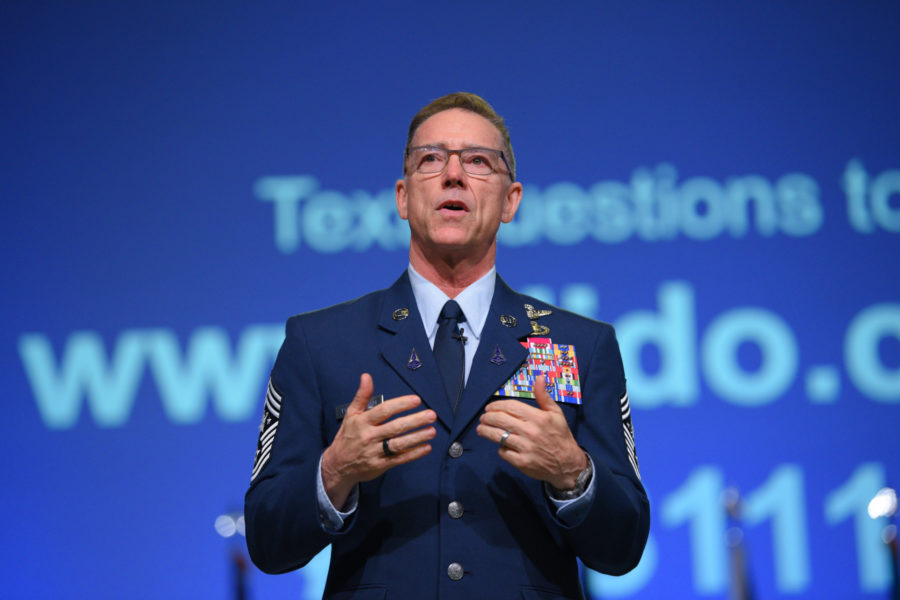As the Space Force looks to implement its new human capital plan and incorporate Soldiers, Sailors, Marines, and Airmen into one new culture, the service’s top enlisted member does “worry a little bit” about getting it all right.
Chief Master Sgt. of the Space Force Roger A. Towberman, speaking Nov. 11 at a virtual event hosted by the Center for Space Policy and Strategy, acknowledged the enormity of the challenge facing him and other USSF leaders as they try to revamp how the military approaches some fundamental personnel matters, while adding that, “I think we’ve got a good idea of where we want to go.”
“Just a couple weeks ago, I was talking to one of the former Chief Master Sergeants of the Air Force, and I said, ‘You know, I think I was set up pretty well—I think I understood what I was getting into,’” Towberman said. “I knew how hard I was going to have to work. I knew the change we’re going to have to manage. I understood a lot of what I was stepping into, or thought I did. The one thing that I did not fully appreciate is the weight, … like I’ve led organizations before, large organizations, and I loved every single member of those organizations. This is different. So I do worry a little bit, because I feel this weight to get this right.”
One of the biggest personnel issues Towberman and other leaders will have to face is the promotion process. The Space Force has already split from the other services by saying it wants to use promotion boards instead of tests for every rank above E-4, a plan it is expanding in 2022.
But as the service starts to welcome transfers from the Army, Navy, and Marine Corps, trying to compare promotion candidates with wildly different backgrounds in different services will be a challenge, Towberman said.
“When I look at an NCO [evaluation report] of a Soldier next May in our first time that we bring them in, how will I compare their [professional military education] to Air Force PME? To a Sailor’s PME? I can’t, right? Like, it’s completely different,” Towberman said.
Even between the Air Force assets that transferred to the Space Force, Towberman said, there are “micro-cultures” that have to be blended together. And because of those differences, more work is required to make sure that when it comes to promotions, evaluators cannot rely on “shortcuts or proxies that we might have used when we all knew each other.”
“Don’t look at this, don’t look at this, don’t look at any of those shortcuts. You’re really gonna have to dig into these records and really work hard,” Towberman said of the mindset. “So it’s created more work, but it’s, I think, produced a better outcome.”
It’s not just across services, either. In November, Towberman said, the Space Force will assemble its promotion boards for E-8s and E-9s. But instead of looking at different groups based on the three different enlisted career fields—cyber, intelligence, and operations—the board will look at the larger group as a whole.
“The allocations are still going by [career field], but we’re looking at them as one group, so that we can iterate on that process and see what we learn and analyze, ‘OK, if it was just one list, do we feel like we’ve dialed this in or do we have blind spots that we have to work through?’” Towberman said. “Because what I know is there are super talented people across all of those specialties. But if I look at their records through the wrong lens, there may be a group that has an advantage, and so we’re working on that lens and trying to adjust it, all while we move towards this sort of competency-based approach, which is what we really prefer.”
